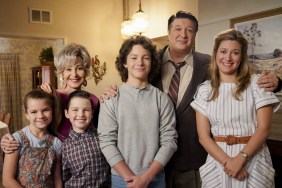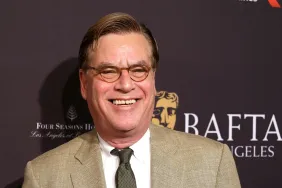Neil LaBute has been known for taking on projects that have a strong clash and sometimes vicious battles between the opposite sex. In his latest film, Lakeview Terrace, that conflict takes an interesting twist as racial tensions heat up adding intensity to LaBute’s signature cruel and sometimes accurate portrayal of the ugly side of human nature.
Q: So why are we shooting in Walnut?
Neil LaBute: Why are we shooting in Walnut? We ask ourselves this everyday, Walnut. Not Walnut but the street that we ended up on was as much like the description of the cul-de-sac in the script. It’s surprising really how similar it was. Now of course you go in and you change out the houses and you work on their back yards and all that but in terms of the layout of all the homes and the two homes in particular where the families were kind of going to spend most of our time with, the layout was the most advantageous one that we could find. We kind of looked everywhere from Calabasas to here and we wanted something that felt very suburban but would afford a believable backdrop for fires and so while you know you’re going to do a fair amount of changing, the actual structure and layout of not just the homes but the surroundings made the greatest sense.
Q: Are you guys staying in the area or are you driving in everyday?
LaBute: It depends on the day. Like when we work days we’re usually early enough that you don’t notice it because you come out just early enough to miss it and you leave late enough that you’re kind of going against it in both directions. This week I think people are giving serious thought to staying because we’re shooting nights, you get off early enough in the morning or late enough in this case that you’re kind of going into town with everybody so I think there will be a fair number of people who will actually stay. We’re going to see how it goes.
Q: You mentioned fires. Can you just tell us what the film is about beyond just the plot but also thematically?
LaBute: Well the fires just come from the time of year that we find ourselves in. That they’re on the news and in the vicinity there are kind of raging fires and a part of that heat is the element that we’re playing with in terms of color and you know the way we’re shooting it and just thematically it makes sense that it keeps getting hotter and hotter. The simple plot breakdown is that a mixed race couple moves into a neighborhood and a black LA cop living next door takes a kind of instant dislike to them and starts a campaign to get them to leave and so the racial side had been interesting to me. I had done a play a couple years ago that had a mixed race couple and racial politics were at the front of that. There was a movie that I was trying to do for a while as well and while it took place in the sixties, it had a similar theme. So I’ve remained interested in that for a few years. I ended up doing the play with the same person I was going to do the movie with. One of the reasons I think the movie didn’t end up happening is because we actually ended up working on it on stage. But for me it remains an interesting subject certainly and I thought the way in which the writers had approached it, it seemed to take a refreshingly different approach to it. Not only was the cast interesting to me but it was just a bit of material that I hadn’t seen handled in that particular way so it seemed well worth getting involved in.
Q: Why Samuel L. Jackson?
LaBute: Well, why not is as good a question. You know he’s somebody who you have a character that because he certainly has the authority for the cop. I believe the sense of authority that he brings to it but he’s quite wonderful to watch with his children. He’s a widower and so the human side needed to be able to be tapped into and it’s not a very conventional bad guy. You know while he’s a guy who you certainly question the choices that he’s making and the reasoning behind it, you’re able to follow the beats when he says why he’s bothered by this or what the back-story for him is, it makes sense. It doesn’t feel like he’s just a villain. It feels like a guy who’s been pushed in a certain direction and his belief system is altered. So he makes that commanding figure and yet a believably human one too so he’s able to you know, to tap into whatever you need. And he just works quickly and smartly and it’s nice to be around somebody who knows how to shoot movies so well as well. He comes prepared-I mean he’s like all the good people I’ve worked with. He just comes and has ideas and isn’t afraid to say them and doesn’t just do what you want him to do. You know he wants to know why we’re doing things and that makes the movie better. It makes you continually question the script and make sure you’re asking all the right questions yourself so I’m not afraid of somebody who’s constantly asking you know why aren’t we doing this and does this make sense for the character and for the story and so you get that along with a performance that really works.
Q: Is this a similar thing to the Ray Liotta movie with the cop using his powers to get at these guys?
LaBute: Well there’s certainly you know if you were to describe the two movies at Blockbuster you’d go, “hmm I could tell you about this.” That said, I think the cop in that film if I remember correctly, abuses his police powers to a great deal more and in an almost not unbelievable way but in a way that makes you worried about what they’re able to tap into. Like controlling not just their driving record but their money sources and that kind of thing. This is a much more domesticated kind of situation so much of it happens in the neighborhood. What was interesting to me in terms of the scenario was the people that you would conventionally turn to immediately if this kind of situation broke out, that possibility is removed when he is a member of the police force and the sheriffs that come whether they’re friends, they’re friendly with him by association by knowing who he is. One character describes the situation-this couple finds themselves as he wins the color issue and the color is blue. This fraternal sense of police is what really becomes a terrifying thing for them. They can’t just call the sheriff. They can’t just called the LAPD and say I’ve got a problem. A lot of what is happening happens firstly circumstantial and then as it begins to build even when the police do come there seems to be no ramifications for it. There’s no one to turn to beyond that so the conventional wisdom that they receive from a lawyer which happens to be one of their parents is move away. If you can’t deal with this and you shouldn’t, I’m not saying you should stand up to this person, you should just get out of there because there’s no good that’s going to come of this. This person, who he is, where he finds himself… and I think it’s more than just a color clash in the movie which is an interesting thing to me. It’s a constant clash. There’s a clash of male and female and old and new and generational and blue collar and white collar. There is a point where even though he’s perpetrated it, once Sam’s character is involved in this, there’s no way for him to back down. He will continue to push until these people either move or something terrible happens so that’s a bad situation to find yourself in as just a neighbor. So it’s interesting to watch.
Q: Can you give us an example of a few of the things he does to mess with them?
LaBute: Yeah, the kinds of things that you see happen after a conflict, they’re bad talking and they realize that their air conditioning isn’t working so they go outside and the air conditioning, not the hose but the belt is broken but it looks like it’s been cut but we don’t show him doing those things. There’s just this kind of circumstantial. After another confrontation, their tires have been slashed. The first thing he does to bother them are these spotlights he has on the outside of his home and when Patrick Wilson’s character goes to just sort of nicely say hey, until we get some curtains could you point those away he says there’s been people down you know kids hanging out and breaking bottles and they’ve come up and broken into homes. So there’s always an answer he has for everything that’s happening but the more we imply that he’s doing it, the less really substantial evidence they have to show anybody so it really becomes our word against his word. And in terms of the police it always seems to fall on his side so it just continues to escalate you know from that kind of behavior to outright bursts of violence between them across the fence and leading up to the climax of the movie.










